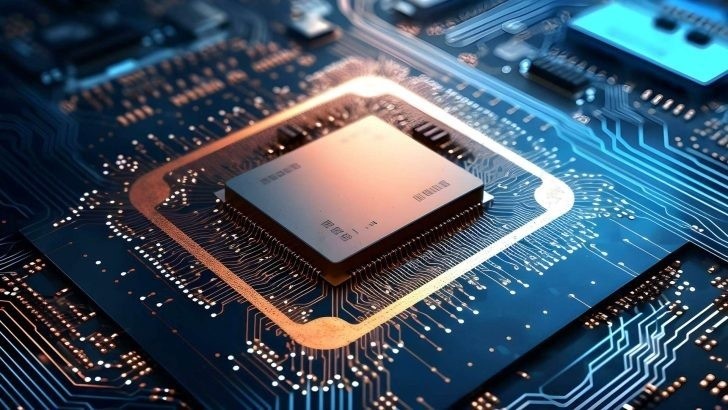The global semiconductor industry is becoming increasingly competitive, especially in the field of artificial intelligence (AI) chips, which is developing rapidly. Recently, Open AI exposed its first self-developed AI chip, and this news quickly became the focus of the industry. The chip will be built on TSMC's advanced A16 process and customized for its Sora video generation model, which is designed to dramatically increase the computing power of video generation. This not only highlights OpenAI's ambitions in AI hardware, but also heralds fierce competition with Apple over TSMC's A16 process capacity.
Technological breakthroughs and prospects
TSMC's A16 process is currently one of the most advanced process nodes in the industry. It is based on next-generation nanosheet transistor technology and is equipped with Super Rail Technology (SPR) to provide a leading backside power solution. According to preliminary reports, compared with the existing N2P process, the A16 process has a 1.10-fold increase in chip density, an 8%-10% performance improvement at the same operating voltage, and a 15%-20% reduction in power consumption at the same speed. These process improvements, which are expected to begin mass production in the second half of 2026, will bring significant improvements in the performance and energy efficiency of AI chips.
OpenAI's strategic layout
OpenAI's self-developed chip plan is undoubtedly a strategic move to respond to the growing demand in the AI market. With the rapid development of generative AI, OpenAI is gradually transforming from relying on third-party suppliers to independent research and development. By developing its own AI chips, OpenAI hopes to enhance its competitiveness and reduce its dependence on external supply chains, especially in the context of the current tight supply and demand of chips. In addition, the complexity and computing power requirements of AI models continue to increase, and self-designed dedicated chips will become the key to improving AI performance.
OpenAI chose to cooperate with TSMC to use the A16 advanced process to manufacture its self-developed AI chips, marking its great stride in hardware innovation. This will not only help it gain a technological advantage, but will also further promote the application of AI in video, natural language processing and other fields.

Figure: OpenAI's self-developed chips are first exposed: AI hardware strategic competition upgrade
Apple's competitive participation
As a key partner of TSMC, Apple has taken the lead in booking the first batch of production capacity for the A16 process, continuing to strengthen its dominance in the field of AI and hardware. In recent years, Apple has gradually increased its investment in AI hardware, from the integration of AI processing units in iPhones, iPads and other devices to the development of Apple Silicon chips, all of which show its ambition to deploy AI. Apple's demand for the A16 process also highlights its deep integration plans in future AI products.
Industry Impact and Competitive Landscape
OpenAI and Apple's capacity competition around TSMC's A16 process reflects the increasingly fierce competition in the global AI chip industry. This competition is not limited to the technical level, but can also have a profound impact on the global supply chain and market landscape. With the rapid progress of AI technology, the leading chip manufacturing process will directly affect the speed, energy efficiency, and cost of AI applications.
In the long run, competition in the AI chip market will drive more technological innovations and help various industries achieve a wider range of AI applications. From autonomous driving, intelligent manufacturing to medical diagnosis, the performance of AI chips directly determines the actual implementation effect of these technologies. Therefore, whether it is OpenAI or Apple, competing for TSMC's A16 process capacity is not only for the improvement of hardware performance, but also for the strategic highland of seizing the future AI market.
Market trends and data analysis
According to market research firm Gartner, the global AI chip market is expected to reach $71 billion in 2024, a year-on-year increase of 33%. This trend reflects the strong growth momentum of the AI chip market, which presents a huge market opportunity for chip manufacturers. OpenAI and Apple chose to increase investment at this time to compete for TSMC A16 production capacity, undoubtedly in order to take the lead in the fast-growing market.
In addition, the energy efficiency ratio and computing power improvement of AI chips will directly determine their performance in specific applications. Driven by improved energy efficiency and performance, AI chips will bring greater value to a wide range of sectors, from consumer electronics to industrial manufacturing.
Summary and outlook
The exposure of OpenAI's first self-developed AI chip not only marks a key step towards independent hardware research and development, but also reveals the future direction of the AI chip market. With the competition between Apple and OpenAI in TSMC's A16 process capacity, the competitive landscape of the global AI chip market will undergo profound changes.
In the long run, this competition will drive the global AI hardware industry forward. The wide application of TSMC's A16 process will not only bring innovation at the technical level, but also promote the development of the entire AI industry chain. As an important promoter of global AI hardware innovation, OpenAI and Apple's technology competition will accelerate the implementation of AI technology and provide more powerful computing support and application scenarios for various industries.
China Exportsemi Web will continue to pay attention to the competition dynamics between Open AI and Apple, deeply interpret the development trend of AI chips, and provide readers with the most cutting-edge industry insights. In the future, AI chips will become the core force to promote the continuous evolution of AI technologies and application scenarios, and they are also a vital part of the development of the semiconductor industry.






